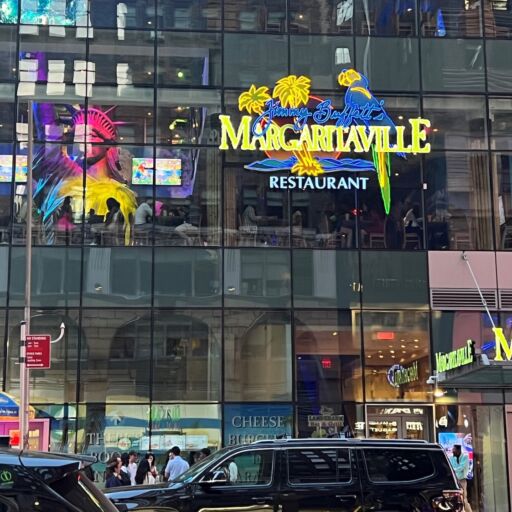This story was first published in The Hotels issue (#6) which hit stands in March 2024.
Every afternoon from 3 p.m. to 10 p.m., mini martinis with a choice garnish — pickled onions, green olives or a thin twist of lemon — are served in antique-looking coupes by a friendly bartender in the inviting lobby of The Woodlark hotel in Portland.
The hotel, listed on the National Register of Historic Places, is one of many boutique hotels in the city. It didn’t take much to convince me that The Woodlark hotel, named as the “House of Welcome” in the 1920s, was still living up to this designation over 100 years later, even though technically it wouldn’t have been known as a boutique hotel (still a relatively new concept today) for decades — and not just because of the complimentary cocktails, though they certainly do not hurt.

Portland has its fair share of popular chain hotels and will soon be welcoming a Ritz-Carlton, though it’s largely been a haven for small, boutique hotels that show off a piece of the city. Scott Youngblood, area general manager for Benchmark, Pyramid Luxury & Lifestyle who manages several hotels in Portland, echoes this sentiment. Youngblood sees the boutique hotel as offering a more personalized, curated experience: “Our properties blend unique design, personalized service and a distinctive sense of place.”
The best boutique hotels demonstrate this from top to bottom. Rather than simply functioning as a building with hundreds of guestrooms designed the exact same way with nondescript artwork and run-of-the-mill fixtures, boutique hotels tend to be design-forward, starting, often, with historic structures that have been preserved and restored.
Dr. Amit Mehrotra, an assistant professor in the hospitality management department at New York City’s College of Technology’s, points out that Kimpton, understood to be the pioneer in the boutique hotel category, has excelled in this regard. To wit: Kimpton Hotel Monaco Salt Lake City is housed in a building dating back to the early 1800s and features historical architectural details, and Kimpton Hotel Palomar in Philadelphia is an adaptive reuse of the historic 1929 Architects Building designed by Paul Philippe Cret.

But when the first Kimpton opened as the Clarion Bedford Hotel in San Francisco in 1981, it was doing something unheard of in hospitality at the time. “It was very customer service-friendly, very personable,” Mehrotra says, adding that they also had a great benefit system for their employees, something that may have been a factor in the cheery dispositions and strong customer service guests of boutique properties have come to rely on.
Oh, and they allowed guests to travel with their pets free of charge.
Of course, pet-friendly hotels are increasingly common today (as are lobbies designed like living rooms and free happy hours, to boot), but at the time, it was a rather revolutionary concept.
In the nearly 40 years since its inception, the Kimpton brand has been synonymous with the boutique hotel and has inspired countless hotels seeking to appeal to discerning travelers all over the world. So while it may seem like yet another chain hotel with its 76 properties in 64 cities around the country, its influence in the accommodation landscape is significant. In a way, it’s changed the way we travel.
Given the abundance of boutique hotels —for even the Hiltons, Hyatts and Marriotts of the world have developed a boutique-like category — it may be all too easy to take the specialty concept for granted.
Generally more affordable (though this is changing to a certain degree) than a luxury, five-star hotel (boutiques tend to be four-star, sometimes three-star establishments), the boutique hotel appeals to a growing number of travelers seeking a distinct experience — the opposite of an impersonal cookie-cutter resort that’s part of a huge corporation, explains Mehrotra. In a boutique hotel, “you don’t feel lost,” he says.

This was certainly true of my stay at the Pelican Hotel in Miami last winter. The 1950s Art Deco hotel had recently reopened after a two-year renovation, unveiling cinematically themed rooms and a design collaboration with Diesel. In a sea of mega-resorts on South Beach, the 32-room Pelican stands out not just for its completely original design aesthetic but for its gregarious and helpful staff who seemed to recognize every time I sauntered through the front door.
Although the boutique hotel continues to appeal to discerning travelers who want a unique or special stay, the truth is the concept has become a bit diluted. “The proliferation of the concept of boutique is such that the lines have become a little blurred,” Mehrotra says. “Nowadays, every small hotel that’s luxury, semi-luxury, and it’s a little different, they try to market themselves as boutique.”
Pendry, a fast-growing brand that’s opened nine U.S. properties in six years with more on the way, is among the new wave of hotels marketing themselves as boutique, though the term the company’s CEO Alan J. Fuerstman used when I met him last year was “lifestyle hotel.” This suggests something beyond a boutique hotel, in step with travelers’ changing wants and needs (and maybe a recognition of the saturation of the boutique hotel, too).

The hospitality element that’s part and parcel of the boutique experience, however, is present in spades across the Pendry collection of hotels, but whereas the original boutique players were all about affordable charm, Pendry is decidedly more luxe, with a nightly rate to prove it (in New York, a standard room starts at $1,000; by comparison, a stay at Kimpton Hotel Eventi, also in Manhattan, is $469). Travelers seeking boutique hotel accommodations may still be able to find affordable options, but the boutique category, as it has grown and expanded in its four decades of existence, is no longer as budget-friendly as it once was. And on the rise are upscale boutique offerings, like the Aman brand, which Mehrotra says is “focused on the concept of boutique and very heavy on personality.”
“Because the whole concept of boutique was that it was more personable, everyone has a
personality, guests feel they are getting the attention,” this led to other hotel categories “not wanting to be viewed as cookie cutter,” explains Mehrotra.
Taking a page from the boutique look, hotels across the country — whether deserving of the boutique designation in the traditional sense or not — have embraced the ethos of the boutique accommodation offering. “Big chains or big companies coming into boutique concepts is a good thing,” Mehrotra says.




